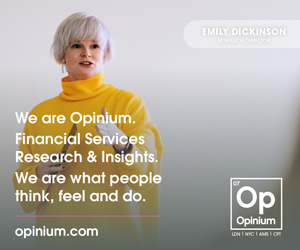At the Capital Pioneer Digital Assets Summit in London, the “Lessons from the Future” panel delivered a clear message: Asia and the Middle East are no longer experimenting with tokenisation — they’re operationalising it. With regulatory clarity, institutional appetite, and infrastructure momentum, these regions are setting new benchmarks for digital capital formation, while global markets scramble to keep pace.
Moderated against a backdrop of fragmented adoption and cautious regulation in the West, the session brought together three senior figures shaping the future of tokenised finance: Matthew Ong, founder & CEO of Ctrl Alt, Darren Jordan, chief commercial officer at Komainu, and Esme Pau, head of capital markets and strategic intelligence at CertiK.
Asia and the Middle East are leading the way in tokenised assets and securities regulation, establishing themselves as the new vanguard of digital finance, according to a panel at Capital Pioneer’s Digital Asset Summit this month.
For many firms, the choice of jurisdiction comes down to where the regulatory framework is in place to support digital assets, forcing institutions to “pick the jurisdictions where you believe, number one, the clients are there, and number two, there’s a regulatory framework in place”, according to Jordan.
The sheer appetite for proactive change in these regions has made them magnets for capital and innovation.
“The regulatory regime is really what’s driven people,” said Ong.
The UAE has emerged as a clear leader by building its digital asset infrastructure from the ground up, with the Middle East capitalising on the agility of its regulatory bodies, according to Jordan.
“Build it from scratch, do it properly, take consultation and become the specialist in your field,” he said, pointing to a specific example: “The jurisdiction that we see particularly interesting is the Middle East, Dubai, specifically Vara (Virtual Assets Regulatory Authority) that’s set up a brand-new regulatory framework specifically for digital assets.”
Komainu was the first regulated custodian in Dubai.
This first-mover advantage is crucial, as “there’s an opportunity for them to step up the game and gain a big market share versus traditional jurisdictions in the capital markets,” Jordan added.
This signalling was what attracted Ctrl Alt to the region. “When we first started, we found ourselves drawn into the Middle East for the same reason,” Ong said. “There’s a dedicated regulator set up to help and promote innovation in digital assets.”
This has led to ambitious projects, such as the tokenisation of property.
“All of their real estate now on chain,” said Ong, noting that Ctl Alt was the tokenisation engine appointed to run the project. “This involved bringing property, bringing these title deeds natively onto the blockchain.”
The panel noted how the immediate implementation in these regions had begun with small, pragmatic steps, moving toward tokenisation of real-world assets and money market funds.
Pau turned the conversation toward systemic risk, warning that tokenisation’s promise must be matched by resilience.
She referenced Hong Kong’s evolving digital asset framework as a signal that security protocols must evolve in parallel. “Security isn’t just smart contract audits — it’s understanding how tokenised instruments behave under stress,” she said. “We’re working with regulators to build stress-testing protocols and map systemic vulnerabilities, because tokenisation changes how risk propagates.”
She also cautioned against assuming that tokenised products are inherently safer or more transparent. “The technology gives us new tools, but it also introduces new attack surfaces,” Pau said. “We need to think about composability, liquidity fragmentation, and governance risk, especially as these instruments move into mainstream capital markets.”
For the UK and the EU, the lesson is clear: speed of execution is critical to retaining talent and capital.
“Speed of execution for us is the biggest lesson,” Ong asserted. “If you leave it too late, you are going to have a flight of talent, a flight of capital out of the country.”
Ultimately, success is not just about adopting the technology but about creating an environment that lasts.
“Everyone that is in business right now is building a legacy or a business and the entire ecosystem just needs to make it sustainable,” she said, closing with a call for collaborative experimentation.
“The jurisdictions that are winning are the ones that invite dialogue,” she said. “They’re not just regulating — they’re co-designing with industry.”



